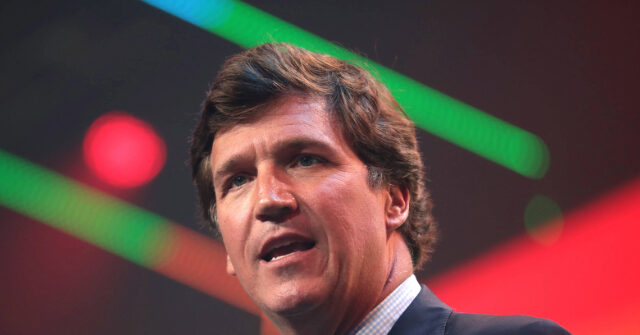Tucker Carlson recently featured a third interview on X with the leftist economist Jeffrey Sachs, known for his outspoken anti-Israel sentiments. In this discussion, Sachs asserted that the downfall of the Syrian government, particularly Bashar al-Assad, was orchestrated by Israeli Prime Minister Benjamin Netanyahu as part of a broader strategy to dismantle any regime that might support Palestinian self-determination. Sachs described recent upheavals in Syria as a culmination of a 30-year plan driven by Israeli interests, accusing Netanyahu of pursuing a “war on Syria” to maintain control over the geopolitical landscape. This claim is particularly controversial given that it frames Israeli actions not merely as political maneuvers, but as part of a supposed conspiracy to shape the region’s future in favor of what he deems are Israeli objectives.
Sachs’s portrayal of the Assad regime as a “normal, functioning country” by the time of the Arab Spring in 2011 blatantly overlooks the regime’s long-standing history of brutal repression. He fails to acknowledge the totalitarian nature of Assad’s rule, which had led to the deaths of tens of thousands of Syrians prior to the uprising. Moreover, his argument connects Hamas and Hezbollah’s existence and actions with Netanyahu, despite these groups’ established history prior to Netanyahu’s first term as Prime Minister in 1996. Sachs’s narrative aligns dangerously with antisemitic stereotypes of Jewish influence in global politics, asserting that Israel has been a driving force behind numerous American military interventions.
Throughout this interview, Carlson did not challenge Sachs’s narrative or demand evidence for his outlandish claims, a pattern that raises serious concerns about the vetting of guests and ideas on his platform. Sachs’s past critiques of U.S. foreign policy fit into a broader narrative that dismisses complex geopolitical realities in favor of simplistic conclusions that demonize Israeli leadership. Sachs elaborated on his views in a piece for the progressive L.A. Progressive, where he connected the Syrian conflict’s roots to the rise of Netanyahu in 1996, framing it as a conspiracy borne out of U.S.-Israel collaboration.
The narrative Sachs advances neglects critical context, including the longstanding grievances and sectarian conflicts within Syria. His failure to recognize the significant role of various Sunni nations and even Russia complicates the account presented, as he attributes the entire crisis to American and Israeli collusion. Such oversights omit the multifaceted nature of the Syrian conflict, which cannot be solely understood through the lens of Israeli political ambition. Sachs’s polemics not only misrepresent the dynamics of the Middle East but also contribute to a dangerous mythologization of international relations that can fuel further unwarranted hostility towards Israel.
Sachs, transitioning from a renowned economist to a figure embraced by the left, has made his name by advising radical economic reforms that resonate with progressive ideologies. His recent political alignments have created rifts, exemplified by a split with Robert F. Kennedy Jr. over their contrasting views on Israel amid ongoing conflict. Carlson’s interest in Sachs may stem from the latter’s strong anti-Israel stances, which dovetail with the host’s ongoing critique of liberal viewpoints. The lineup of anti-Israel guests featured on Carlson’s platform points to a notable trend towards hosting voices that align with a revisionist narrative regarding the Israeli-Palestinian conflict.
Carlson’s history of embracing controversial narratives often regarded as antisemitic fosters speculation about his own views on the subject. His previous accusations of antisemitism from organizations like the Anti-Defamation League have led to his positioning as a figure fighting against perceived “cancel culture” in media. Despite gaining a significant following and now operating independently, it remains to be seen how Carlson’s platform influences wider discourse on international issues, especially concerning the Israeli-Palestinian conflict and U.S. foreign policy. His connections to notable political figures further embed him within a network asserting significant political influence, despite apparent contradictions in the narratives he chooses to promote.
As the conversation around the Israeli-Palestinian conflict continues to become increasingly polarized, Carlson’s choice of guests like Sachs illustrates how discourse can be shaped by sensationalist claims that lack substantiation. Instead of fostering nuanced discussions that reflect the complexities of the situation, such interviews risk perpetuating divisions and misunderstanding. Critically engaging with these narratives is essential for understanding the multilayered dynamics at play within the Middle East, especially for audiences influenced by the views presented on digital platforms.

